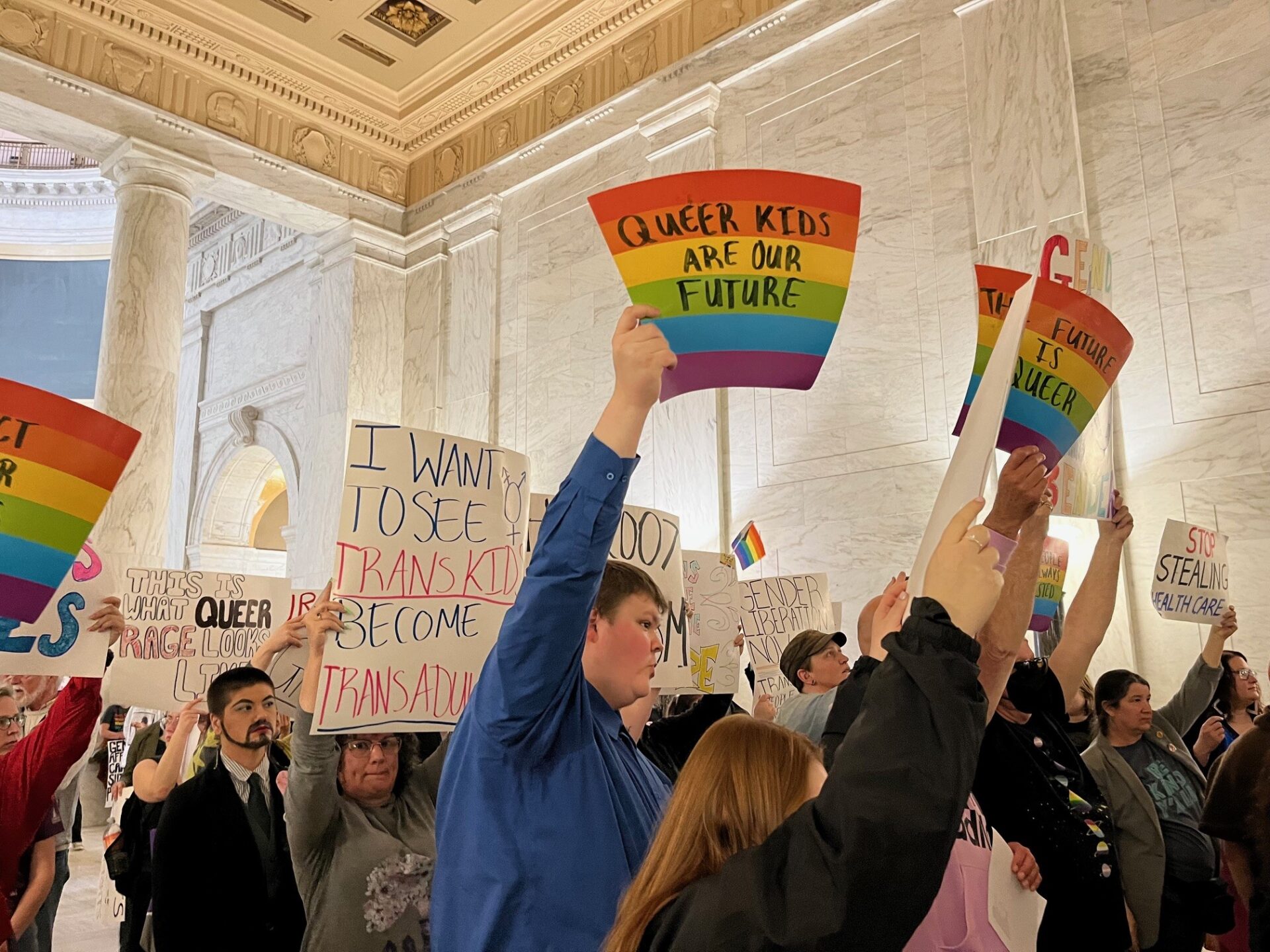The Morgantown City Council passed a law last night that provides employment, housing and other protections for members of the gay, bisexual and transgender communities, making the city the eleventh municipality in West Virginia to provide legally enforceable protections based on sexual orientation or gender identity.
After discussion that stretched well over two hours, council members voted 7 to 0 in favor of a measure that expands its Human Rights Commission. The ordinance provides a legal course of action in civil court related to cases involving discrimination based on the added statuses.
Morgantown resident Roger Banks spoke about some of the discrimination he’s faced a as a man who identifies as gay and HIV positive.
“This hate and this fear is proof of the need for this ordinance — because this ordinance will begin to build a home that’s safe LGBT young people. So, they will not experience the hate and the pain that I have experienced,” said Banks.
Banks was noting the opposition to the bill coming from those who identified themselves as religious leaders in the surrounding community, some of whom argued that they themselves don’t discriminate against the LGBT community and, thus, the measure was unnecessary. Others against the ordinance cited the so-called bathroom issue, arguing that anyone of any gender could make their way into a bathroom to sexually abuse others.
Allen Whitt of the Family Policy Council of West Virginia, a conservative organization that’s rallied against LGBT protections, argued that the passage of the ordinance would be challenged in court.
Andrew Schneider, of LGBT advocacy group Fairness West Virginia, spoke to the council and said Morgantown’s action provides a pathway for the rest of the state to follow suit.
“That will send a strong message to lawmakers at the Capitol in Charleston that this is what West Virginians overwhelmingly desire and need and demand,” said Schneider.
All members of the council spoke in favor of the ordinance before closing discussion and prior to a vote. Barry Wendell, an openly gay member of the council, spoke directly to Whitt and threats of a challenge to the ordinance’s passage in court: “Bring it!” he said.
Currently, 21 states and the District of Columbia have protections based on sexual orientation and / or gender identity. No such protections exist at the federal level.
Editor’s Note: This version of the article clarifies what legal actions are available as a result of the passage of the ordinance. The original story did not specify.
